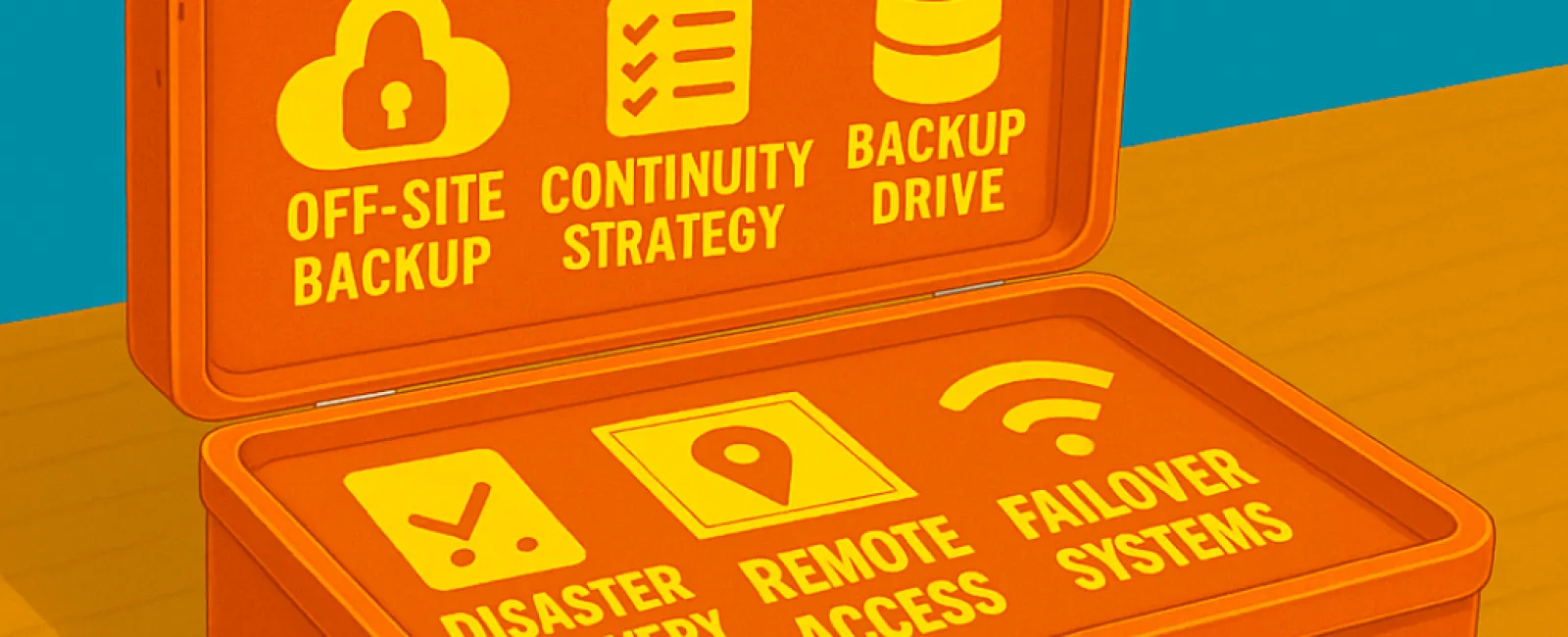July 28, 2025
Unexpected power failures, cyberattacks, hardware malfunctions, and natural calamities strike without warning, often wreaking havoc on small businesses. Many believe that simply having backups is sufficient, but restoring files alone doesn't guarantee business continuity. Without access to critical systems, the ability to support remote work, or effective communication with your team and clients, even brief interruptions can cause lasting damage. Your IT partner must equip you with more than just backups—they need to deliver a comprehensive strategy that keeps your business operational under any circumstance.
Backups Are Just the Beginning—
You Need a Robust Continuity Plan
Backups are vital, no doubt. However, they represent only one piece of the puzzle. What truly safeguards your business is a well-crafted business continuity plan—a forward-thinking approach designed to maintain your operations during and after disruptions.
When systems fail, files become unreachable, or your physical office is compromised, relying solely on local backup files won't suffice. Without a swift and clear recovery plan, your business risks significant losses in revenue, reputation, and regulatory compliance.
Understanding the Difference: Backups vs. Business Continuity
Many businesses make this critical mistake:
● Backups enable data restoration.
● Continuity ensures your business stays functional regardless of the crisis.
A comprehensive continuity plan addresses essential questions such as:
● What is our recovery time objective?
● Where can our team operate if the office is inaccessible?
● Which systems are critical to our mission?
● Who is responsible for initiating the recovery process?
Key elements also include:
● Encrypted, off-site, and immutable backups
● Prioritized recovery objectives (RTO/RPO)
● Preparedness for remote work
● Redundant infrastructure and failover systems
● Regular disaster recovery drills and testing
If your IT provider can't confidently guide you through these critical components, your business isn't protected—it's merely surviving by chance.
Could This Happen to Your Business?
This isn't just a scare tactic—it's a reality many businesses face. Recent events include:
● Florida hurricanes forced hundreds of businesses to shut down, especially those without cloud-based access.
● North Carolina floods wiped out on-site servers, erasing vital records and invoices.
● California wildfires destroyed entire office buildings, leaving many without off-site recovery plans.
● Numerous small businesses struck by ransomware discovered their backups were either corrupted or untested.
Disasters affect organizations of all sizes, including businesses just like yours.
Essential Questions to Ask Right Now
If disaster hits tomorrow, will your business keep running?
Ask your IT provider:
● How quickly can we recover from a ransomware attack?
● Are our backups regularly tested and comprehensive?
● What is the contingency plan if a flood or fire disrupts our office?
● Does our continuity strategy comply with industry standards and regulations?
● Can we continue serving clients if our team must work remotely?
If you don't have confident answers to these questions, your business might already be vulnerable.
Disasters Are Inevitable. Downtime Isn't.
You can't prevent every outage, storm, or cyberattack, but you can control how your business responds.
A reliable IT provider helps you bounce back.
An exceptional one ensures your business never misses a beat.
Ready to assess your business's resilience?
Click Here or call us at (541) 726-7775 to schedule your FREE 15-Minute Discovery Call, and let's safeguard your operations against any disaster.




